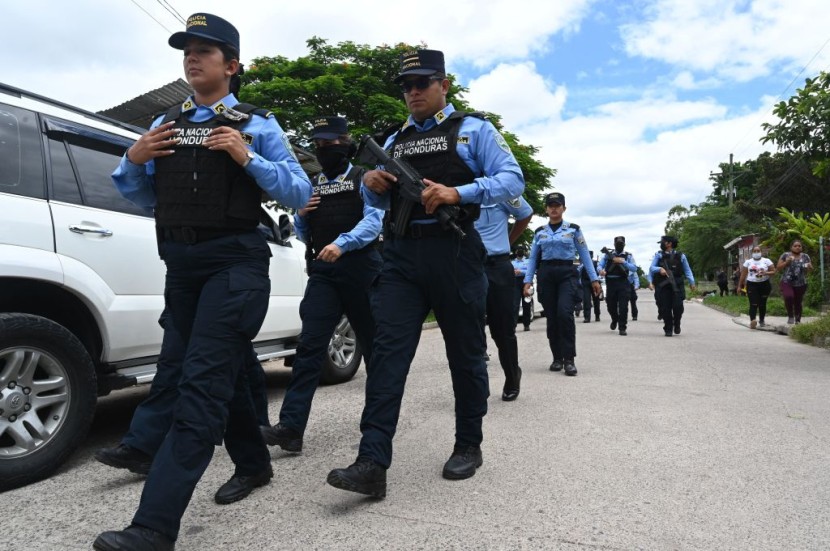
Tuesday's disturbance at a women's penitentiary in Honduras resulted in the deaths of at least 41 women, the majority of whom were burned to death, according to authorities.
Yuri Mora, the spokesperson for the national police investigation agency of Honduras, stated that the majority of victims were incinerated, but there were also reports of inmates being shot at the prison in Tamara, approximately 50 kilometers northwest of the capital city of Tegucigalpa.
Women Killed in Riot at Women's Prison in Honduras
At least seven female prisoners were being treated at a hospital in Tegucigalpa for firearm and knife wounds, according to hospital staff.
According to CBS News, Honduran President Xiomara Castro de Zelaya stated on Twitter that she was "shocked by the barbaric murder of women in CEFAS, planned by criminals in full view of security officials."
The head of the country's prison system, Julissa Villanueva, attributed the unrest to recent efforts by authorities to tighten down on illegal activity inside prisons and attributed Tuesday's violence to "actions we are taking against organized crime."
Mora stated that the death toll could rise as rescue teams continue their efforts, adding that some of the victims died from fires and others from firearm wounds. Per CNN, he stated that the primary assistance center in Tegucigalpa had received several injured persons.
The nation has a history of incidents in its prisons, which have been criticized for their overcrowding and deplorable conditions amid a rise in organized crime. In 2003, 63 individuals perished in a prison riot, and in 2021, more than 300 perished in a prison conflagration.
According to Delma Ordonez, who represents the detainees' families, members of a rival gang broke into the cell of an opposing group and set it on fire. She informed the media that this section of the prison was "completely devastated."
Ordonez stated that the CEFAS correctional facility in Tamara housed approximately 900 offenders.
Honduras Corruption, Criminals
Honduras is rife with corruption and criminals, which have infiltrated the highest levels of government. Along with El Salvador and Guatemala, Honduras forms the so-called "triangle of death" in Central America, which is afflicted by the maras, which govern drug trafficking and organized crime.
Drug trafficking organizations and gang members are primarily responsible for Honduras's skyrocketing homicide rate, which was four times higher than the global average last year at 40 murders per 100,000 inhabitants.
Numerous young people have given up hope for an improved future and are solely focused on immigrating to the United States. The majority of Colombian cocaine and other narcotics destined for the United States pass through Honduras.
In April 2022, former Honduran president Juan Orlando Hernandez was extradited to the United States on narcotic charges, just over a year after his brother Tony Hernandez was sentenced to life in prison in New York.
Per The Strait Times, US prosecutors assert that Hernandez transformed Honduras into a "narco-state" in which the military, police, and civilian population were involved in drug trafficking.
Former national police superintendent Juan Carlos Bonilla was also extradited to the United States to stand prosecution for allegedly supervising drug trafficking operations on Hernandez's behalf in May of last year.








